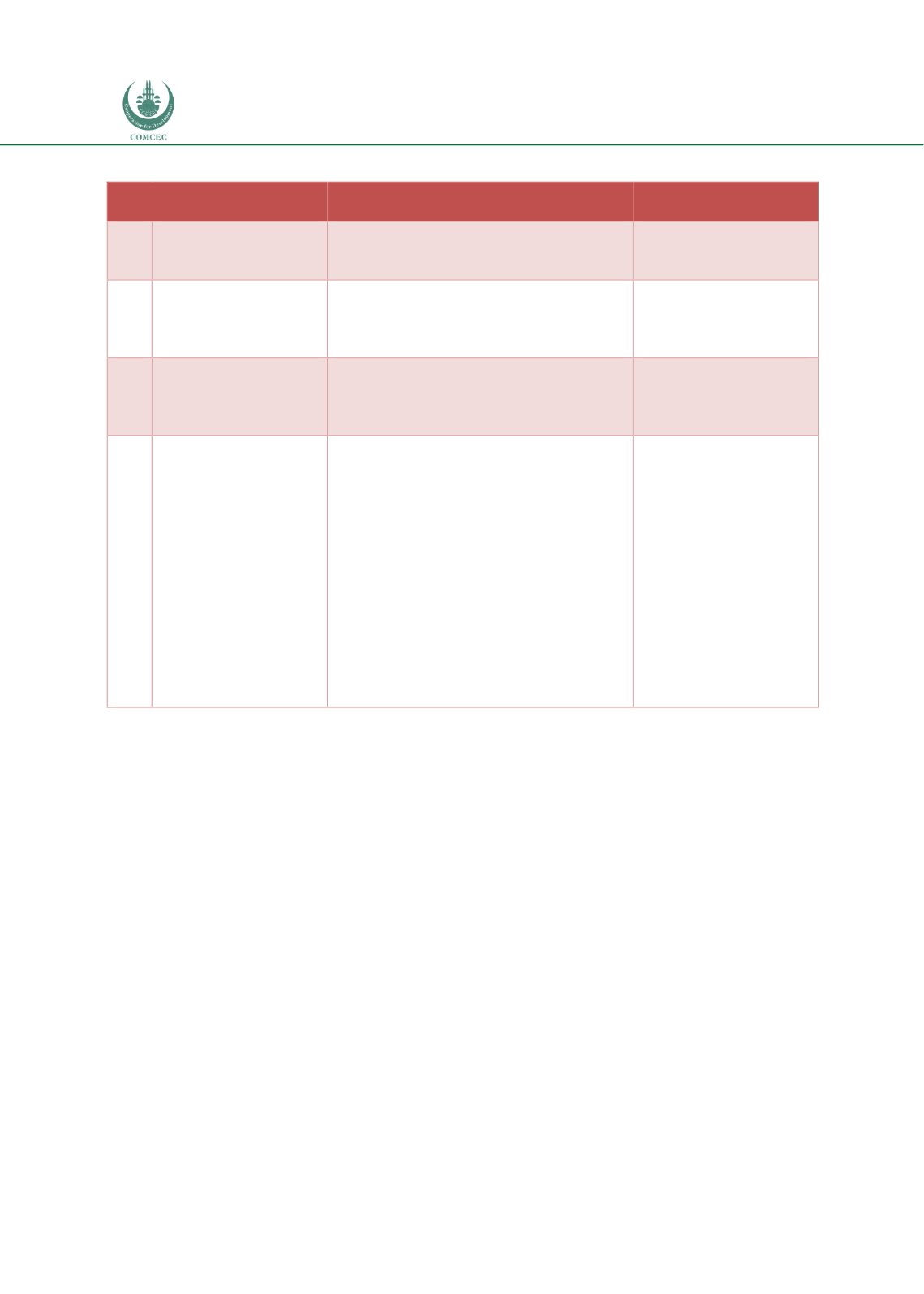

Infrastructure Financing through Islamic
Finance in the Islamic Countries
182
Table 5. 9: Policy Recommendations for Multilateral Development Institutions
No. Recommendations
Specific Steps
Implemented by
8.1 Increase resource
base of IDB
Increase the capital of IDB
Raise funds by issuing sukuk
IDB
8.2 Raise funds from
institutional
investors
Develop and launch Islamic
infrastructure funds
IDB
8.3. Collaborate with
other multilateral
organizations
Develop partnerships with other
multilateral development banks to
create infrastructure funds
IDB and other
multilateral
development banks
8.4 Establish an
International Islamic
Infrastructure Bank
(IIIB)
Establish an International Islamic
Infrastructure Bank to deal
specifically with infrastructure
financing and related issues
Capital can be raised from IDB,
member countries, Islamic
institutional investors and Islamic
financial institutions
Standardize the Islamic
infrastructure financing contracts
and sukuk
Provide advisory services on
structuring Islamic infrastructure
financing contracts and sukuk
International
multilateral
organizations in
collaboration with
other Islamic
institutional
investors
5.9.
Reduce Knowledge Gap and Capacity Building
Since infrastructure finance is multifaceted and new for many Islamic financial institutions,
there is a knowledge gap on how Islamic finance can be used for PPP projects. This gap can be
closed by increasing the awareness among stakeholders to increase the use of Islamic finance
for infrastructure projects. One option is to develop detailed case studies and a data repository
on Islamic PPP project financing from different parts of the world (World Bank et. al 2017).
This role can be performed by either the IDB or the proposed International Islamic
Infrastructure Bank. This database on Islamic infrastructure financing will be similar to the
Private Participation in Infrastructure (PPI) Database developed by World Bank.
One of the key issues involving Islamic finance in infrastructure projects is in having Shariah-
compliant products. Since the projects are large and involve complex contractual
arrangements, there are many intricacies that need to be resolved from a Shariah point of
view. However, there is a limited supply of Shariah scholars who understand the complexities
of project financing and advisory services can also be costly. This problem can be resolved if
templates for Shariah structures that can be used for different infrastructure projects can be
made available to stakeholders to encourage them to invest in the sector. This initiative can be
taken by a national Shariah board at the national level with the assistance of MDBs such as IDB
that have extensive experience in project financing. At the international level, AAOIFI can
develop Shariah standards for PPPs and infrastructure financing.
















